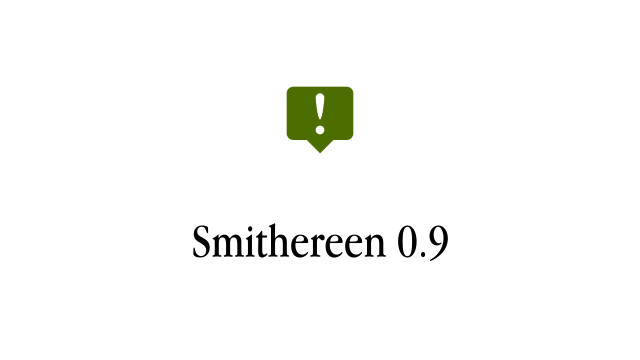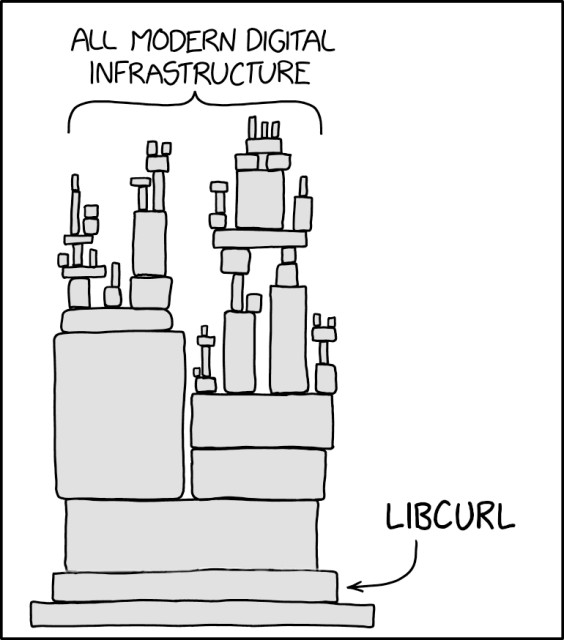|
#Smithereen 0.9 is out! Photo albums are, of course, the headline feature of this release. In addition to that, there's the groups newsfeed and redesigned mobile profiles. Also, Smithereen is now available on Docker Hub: https://hub.docker.com/r/grishkaa/smithereen
Show previous comments
@julian It's great. I saw first a link to your website and I could not reply from my Mastodon account. I had to find the post through Mastodon itself. Maybe in the future you could add the possibility to reply from mastodon account. @mariusor I always go slower on the easy parts of a CX track to have the power to look like a high performer on the difficult parts. Sometimes it works. 😁 Because my laptop is dying I had to resurrect my old desktop machine. It hasn't booted since May 2023. Wish me luck with the updates. :D Hi, Mastodon 🦣 Anyone in Stuttgart who could answer a couple of questions for me? 1. How are things at the main train station now? Last time I was there, it was a construction site & frustrating to get around. 2. Is it worth visiting Wilhelma in winter or should I stick to the Natural History Museum? I don't have time for both. F :pentagram: ck yeah! RUDRA has released a new album: In case there are any followers of mine based in Brussels: on 28th January I am discussing the future of railways in the EU at an event in Brussels Informal event, and there is even beer Come along! https://beersandpolitics.com/rail-for-real-how-can-we-fix-eu-crossborder-railways-in-2025/ @jon I will just leave this link here for no particular reason😃 https://fosdem.org/2025/schedule/event/fosdem-2025-6654-opening-railways-and-open-transport-devroom/ #FOSDEM Support for the new Wayland screen capture protocol has been merged in wlroots! Next step: implement individual window capture https://gitlab.freedesktop.org/wlroots/wlroots/-/merge_requests/4545 @friendica Hey, I'm not sure what's happening with your instance but it's been slamming one of my services in the past 24 hours. Can you please block the instance releases.bruta.link from your side? I'm not sure what's happening, but there's no content on my instance that should be requested multiple times a second incessantly. @helpers maybe you guys are also interested. I opened a ticket also on github: https://github.com/friendica/friendica/issues/14692 I'm not sure it's an actual bug, more of a support request really, but I would appreciate any kind of clue about what's happening. My assumption is that my server returns something weird with respect to caching or the ActivityPub payload that gets the friendica client confused. I'll try to add some mitigations on my side too. 🙇 After what seems like a thousand years I have started replacing some synchronous client to server #ActivityPub fetch requests with loading the same information from an indexed cache in my link aggregator. I think I've started the work on inbox/outbox async fetch and indexing around 3-4 months ago, and only now I am able to make proper use of it. I guess I should have used a real RDBMS instead of reinventing the wheel on every turn. :D Well, a #friendica instance is slamming some of my #activitypub servers. Does anyone have clue about what might be wrong? Since ~3 days it keeps requesting the same URL over and over at a pretty high RPS. @mariusor is it a valid url ? Does it send a post ? Maybe i've to take a lokk in my logs ;-x Just to add to this, Friendica is known to have issues with being an unkind citizen of the web before (this time for RSS): > Friendica, various versions. 100% unconditional requests. Occasionally shows up < 10s after the previous poll. Not good. And the Pidgin 3.0 Experimental 1 release (and it's update) are up on Flathub Beta now! Don't know how to use Flathub Beta? Well we put together some instructions for you! https://discourse.imfreedom.org/t/pidgin-3-on-flathub-beta/230 #OpenSource #Pidgin #Messaging #Pidgin #Flatpak #FlatpakBeta After way too many years the very first release of Pidgin 3.0, Experimental 1 has been released! You can read all about it over on our official Discourse post!! https://discourse.imfreedom.org/t/pidgin-3-0-experimental-1-has-been-released/227 @pidgin never thought i'd see a libadwaita based app with a source download on SOURCEFORGE 0.o Can someone with more #JavaScript experience tell me what's an idiomatic way of solving the problem of an application that must fetch multiple URLs? I currently have the issue that a lot of those URLs actually are the same, so I end-up with 40 requests for the same resource. Is there an elegant way to solve this with minimal overhead over the native fetch API? Merry Crossmass to me I guess. Good signs for the new year. And one stubbed toe for every advent day to the person who let their dog poop where I was riding. Another piece of risky code that relies on Go compiler internals is added to the Rube Goldberg machine that is the #GoActivityPub library... Sigh. The link to the code: https://git.sr.ht/~mariusor/ssm/tree/af069f49e3607f1233a0680bb779d236c8dcb897/item/error.go#L86 |











